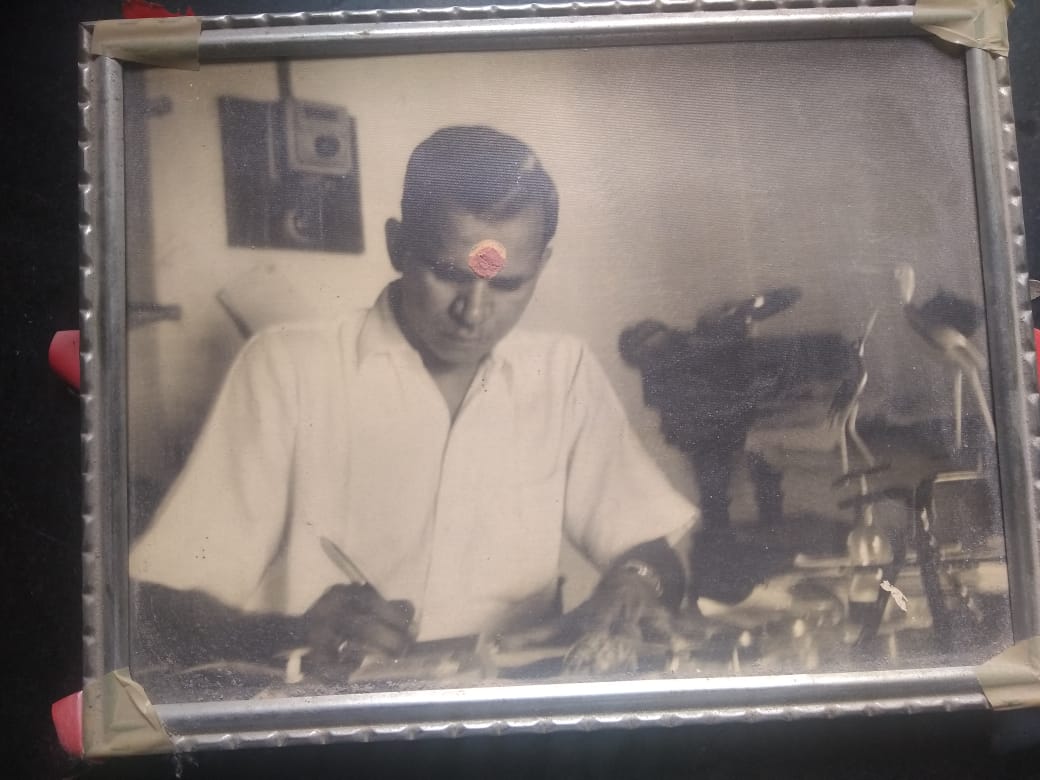N R Swami: Journalist Who Took On The Odisha Govt Of The Day

Some 37 years have passed since my father, N R Swami, a well-known journalist, died. A huge and tall figure, always energetic and agile he carved a niche for himself as he reported what all that had happened in Odisha from the mid-1930s to the beginning of 1980s — a mighty sweep of five decades full of thrills and adventure. He worked for the Hindu and the Statesman and also for the news agency PTI. He was the pillar of journalism in Odisha.
Son of a police officer, who migrated from Guntur in Andhra Pradesh, in the early 1930s, he was a self-made man. He defied all odds to take up journalism, which was never considered a bright or highly paid job. He liked challenges and he adored them. Dynamism and a positive approach were his key assets.
He first job application was to the Statesman which was run by Englishmen. Called for an interview, he set for Calcutta (now Kolkata) only to be told to wait. The wait stretched into hours. The Statesman wanted to test his patience and that frustrated him. Making his first call in the morning, he tried more than eight times before he decided to take the night train back home. He made one last try from Howrah station. To his surprise, he was called for the interview and was straightaway selected. It was no looking back.
Writing was his forte. He was a simple man with a clean heart. He was loved and respected for his dynamic writing. His style was fluent and sparkled with a flow that attracted readership. He embellished his copy with detail. Rain or shine he was at his best. Be it at any disaster site or at any political crisis my father, it appeared, used to be among the first to be present — getting out of his ramshackled car with a camera and a note book. His rolled out cigarettes hung from his nicotine-stained lips. Human interest or social issues and wild life beckoned him to tribal areas or into dense forests. Some of us as kids used to join him on such trips. The car at times would give a scare or during a chilly morning we kids used to give a huge kick as my father held on to the ignition key and pressed the accelator to get it started. Floods were a frequent visitor to Orissa and his elaborate descriptives with photographs alerted the leaders in Delhi and opened the flow of aid by big companies. He had a couple of half pants stitched up to wade in flood waters. He had to come up with telecommunication hiccups to get his stories through.
In his true dashing nature, he exposed the corrupt in the Statesman and the Hindu much to the discomfort of the State Government. Unable to digest the news, the government sent secret letters to PTI, The Statesman and The Hindu saying that he was in the payroll of a foreign embassy and in the interest of the State he be transferred. The Hindu did not take it lying down and, with full faith in its correspondent, asked him what was it all about and posted him a copy of the letter. My father did not believe it at first instance. But once it was revealed, it created a huge furore in political circles in Parliament and in the Odisha Assembly which had to be adjourned for four days.
In New Delhi, Prime Minister Jawaharlal Nehru was bemused by the allegations and reportedly told opposition leaders headed by Praja Socialist party leader Surendranath Dwivedi that as far as he knew “Swami has been a fair and objective journalist.”
The statement reinforced Nehru’s firm commitment to a free Press in the country and shackled the foundations of the Harekrushna Mahtab government in Odisha. Swami’s integrity was put to test. He won. Tough and determined, my father was not fatigued. He filed a defamation suit against the Orissa Government in 1959. Among the witnesses were Congress president UN Dhebar and a cross section of professional and social leaders across the country. The national and international Press took note of his fight with admiration. The Hindu stood behind him like a rock.
He got justice only in 1971 with a remark by the presiding judge that “Swami deserved a much higher reward” had he paid the necessary court fee. He was perhaps the first journalist in a democratic country to win a case against a State government.
His simplicity and honesty opened the hearts of political leaders. He was a scoop artist of his time. He moved with Mahatma Gandhi in the grass-carpetted VIP bogies of the Indian railways. Once he was rebuked for smoking a beedi sitting on the rear edge of the train – on the ladder of the guard compartment. My father carried with him a pack of beedies lest his rolled cigarettes could create problems.
At another point, he took the Odisha leaders such as suave Nabakrishna Choudhary, who was later to become Chief Minister, to erstwhile Calcutta to meet the Mahatma but was denied entry as he wore shirt and trousers. He was finally allowed in after much persuasion or meeting with Jawaharlal Nehru in a running train.
Leaders in journalism and in political and social circles admired his thoroughness of detail on Odisha. The statistics were rolled into his reports. He never shied from work even when he was ill or dislocated a bone in his right leg.
He died of cancer in November 1981. Four out of his five sons fanned out into journalism with their father’s advice – KEEP WRITING.
(inputs were given by my eldest brother (NVR Swami) and second brother (N Pattabhi)

Comments are closed.